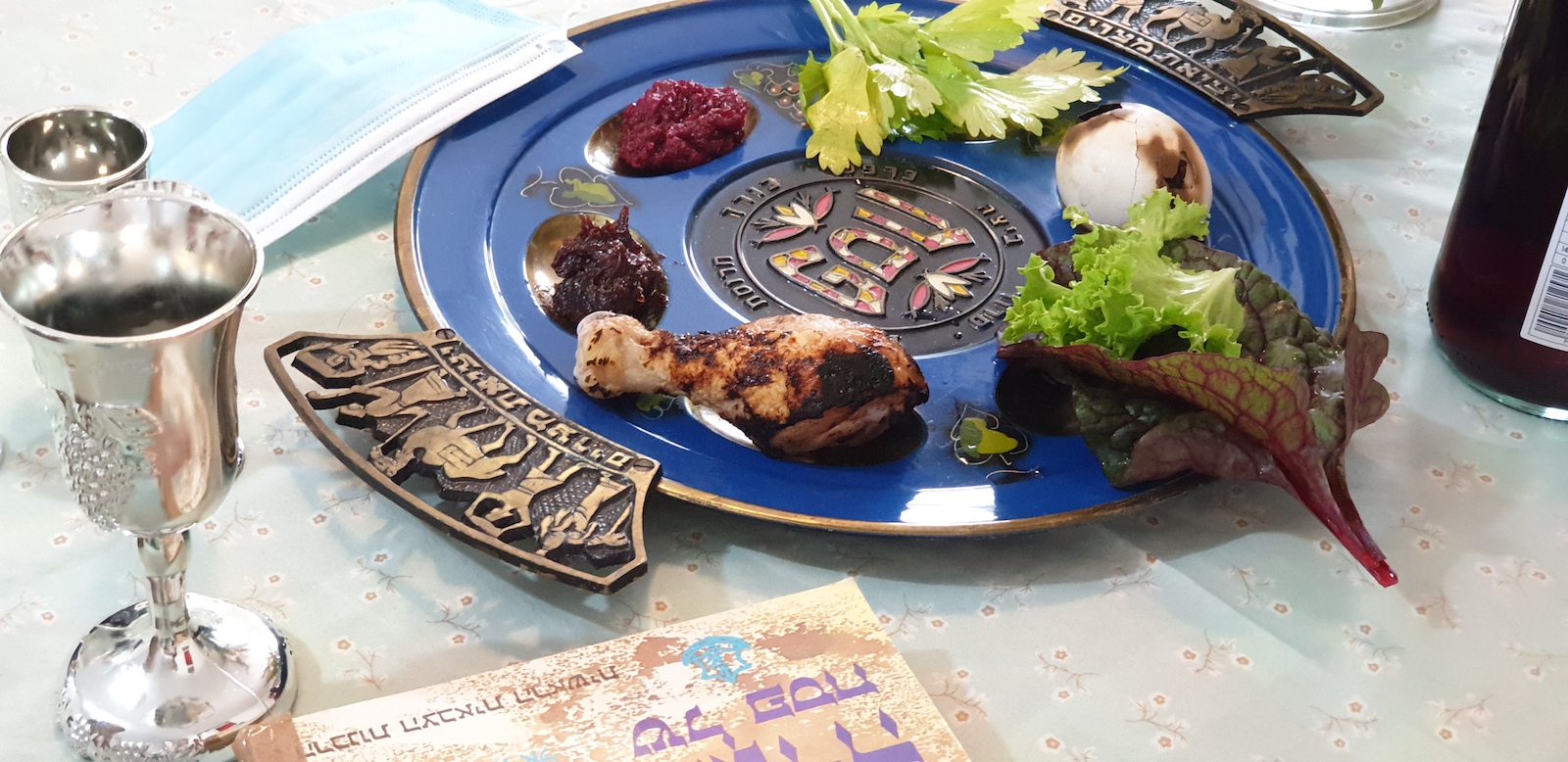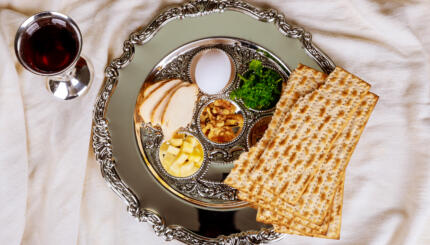Passover is among the most widely celebrated Jewish holidays. While the particulars vary significantly from community to community, and even between individual families, there are many Passover customs that are observed in some form by large numbers of Jews.
Avoiding leavened bread
Passover is the strictest Jewish holiday when it comes to food. For eight days (seven in Israel), Jews traditionally avoid eating food made from leavened grain. Most significantly, this means avoiding any bread or bread products, with some Jews additionally abstaining from any grain product, including beer, pasta, oatmeal and most liquors.
READ: Kosher rules for Passover.
Ridding the house of hametz
In addition to not eating bread, some Jews completely rid their houses of bread products — known in Hebrew as hametz. Those who observe this custom strictly will clean their house thoroughly to ensure even the crumbs behind the couch are removed. Grain products that are too difficult or expensive to remove will sometimes be kept at home but sold to a non-Jew for the duration of the holiday.
With your help, My Jewish Learning can provide endless opportunities for learning, connection and discovery.
READ: How to sell your hametz for Passover.
Fast of the First Born
Some Jews have the practice that the first born in every family fasts on the eve of Passover from sunrise to sunset. This fast is the only one in the Jewish calendar that applies only to one segment of the Jewish community and was established to remember how God spared the first born sons of Israel while killing the first born sons of the Egyptians. Some Jews have the custom of avoiding the fast by holding a festive meal early in the day to mark the completion of some portion of Torah study.
The Seder
The centerpiece of the Passover holiday is the seder, a ceremonial feast held at home on the first night of the holiday (some Jews who live outside Israel hold two seders, one on each of the first two nights.) The seder meal is intended to dramatically retell the story of the liberation of the ancient Israelites from slavery in Egypt and is laden with symbolic foods and rituals, including the eating of the bitter herbs (symbolizing the hardship of slavery) and the dipping of a green vegetable into salt water (symbolizing the bounty of the spring season). As with nearly all Jewish observances, the seder is preceded by the lighting of candles and the blessing of wine.
READ: The fourteen key steps of a seder.
Eating matzah
Dubbed “the bread of affliction,” matzah is an unleavened cracker, usually made from wheat, that is baked quickly (in under 18 minutes) before the batter has a chance to rise. It is eaten at the seder and throughout the holiday in remembrance of the haste in which the Jews left Egypt, leaving no time for their bread to rise. Matzah is the consummate symbol of Passover, which is sometimes referred to in Hebrew as Chag Hamatzot — the holiday of the matzah.
Find kosher-for-Passover recipes from The Nosher here.
Synagogue services
Like all Jewish festivals, Passover has a special synagogue service that includes specific Torah readings for the holiday and the chanting of Song of Songs, the poetic work attributed to King Solomon. The memorial service Yizkor is also traditionally held in the synagogue on the final day of the holiday, one of only four times during the year it is recited.
No work
During the first two and last two days of Passover, many traditionally observant Jews will abstain from most of the same activities they avoid on the Sabbath — no driving, working, using electricity, lighting fires or spending money. On the intermediary days of the holiday — known as hol hamoed — those restrictions do not apply. Many Jewish schools close for the full duration of the holiday.
Prep for Passover like a pro with this special email series. Click here to sign up and you’ll receive a series of helpful, informative, and beautiful emails that will help you get the most out of the holiday.
hol hamoed
Pronounced: KHOLE-ha-moe-EHD, Origin: Hebrew, the intermediate days of the week-long festivals of Passover and Sukkot, falling between the first two days of each holiday, and the last two days of each holiday.
Yizkor
Pronounced: YIZZ-kur, Origin: Hebrew, literally “May God remember,” Yizkor is a prayer service in memory of the dead, which is held on Yom Kippur and on the last day of each of the three festivals, Passover, Shavuot and Shemini Atzeret.
hametz
Pronounced: khah-METZ or KHUH-metz, Origin: Hebrew, bread or any food that has been leavened or contains a leavening agent. Hametz is prohibited on Passover.
seder
Pronounced: SAY-der, Origin: Hebrew, literally "order"; usually used to describe the ceremonial meal and telling of the Passover story on the first two nights of Passover. (In Israel, Jews have a seder only on the first night of Passover.)



